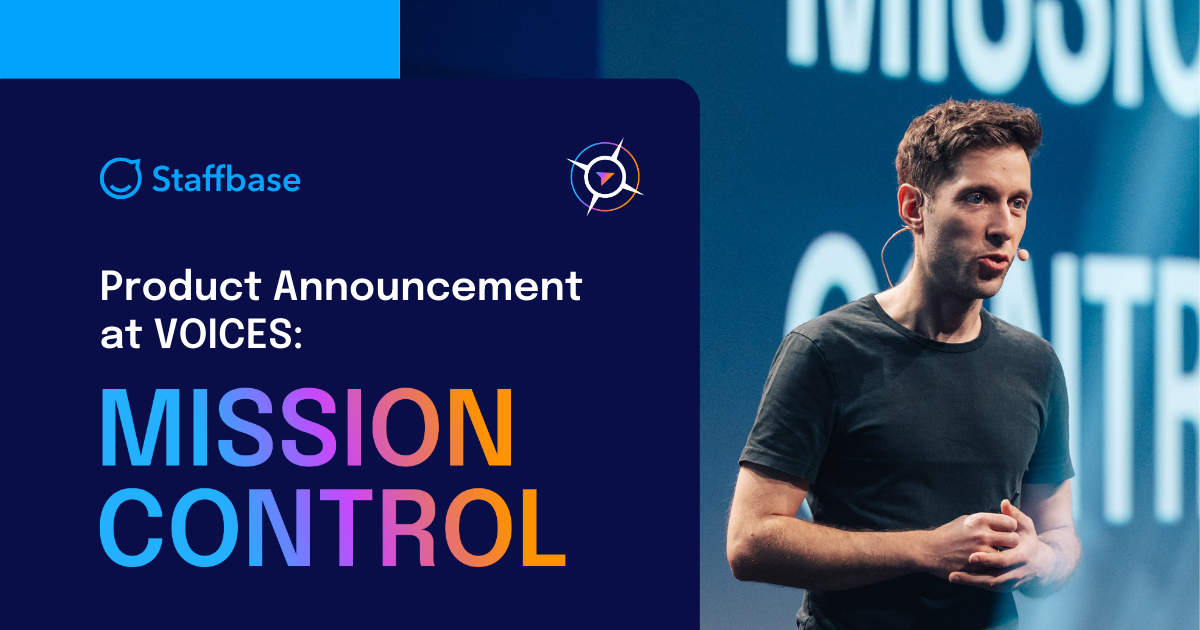“If you can’t say something nice…”
We know how that one ends.
Trouble is, in today's world, organizations don't have the option of saying nothing at all. When it comes to major events like COVID-19 and the Black Lives Matter movement, staying silent speaks volumes—and not in a good way.
And at this weird moment in history, when compassion fatigue and desensitization may be setting in after so much has happened and is still happening, it can be difficult to strike the right tone.
That’s why emotional intelligence is so important.
In the context of employee communications, emotional intelligence is reflected in the way that you understand, manage, and reflect your own emotional states and those of employees.

If we lose sight of how our communications reflect and play into how everyone is feeling, they will be ineffective at best—and damaging at worst.
On the flip side, if we can approach our communications with emotional intelligence, we have the opportunity to really make a difference. Emotionally intelligent communications and strategies positively impact employee happiness, alignment, and, ultimately, retention.
Emotional intelligence is the not-so-secret secret to effective communication.
Time and time again, our circle of internal communicators has reminded us why emotional intelligence is so pivotal for employee engagement and internal communications.
Even better? These comms experts gave us solid reasons why being kind—and authentic and empathetic and honest and vulnerable and compassionate—can help us accomplish more with our communications.
1. Using emotional intelligence to navigate a crisis or change successfully.
Gone are the days when a new personal time off (PTO) policy was the most complicated thing you had to convey.
Now, internal communicators are contending with a pandemic, political upheaval, and widespread social unrest—all at the same time.
Successful crisis or change management often comes back to emotional intelligence in internal communications. Navigating and understanding the emotions at play are crucial to changing minds and behaviors.
Dr. Jen Frahm, Co-Founder of the Agile Change Leadership Institute, puts it best:
The net result of [working in a state of crisis] is our brains are on fire … we actually can’t see opportunities, we only see threats. So the challenge for communicators is: how do we create a state of equanimity in the organization?”

Part of getting through a crisis is realizing we really are in it together. And you can't reinforce or harness the collective experience without emotional intelligence and vulnerability.
Take it from Rachel Miller of All Things IC:
Now is the time for real, genuine connection with our people. So it’s [leaders] admitting that they’re also scared and they’re also concerned and they’re also worried and they’re also trying to be all things to all people and finding it really tough.”

Taking a hard look and being honest about how we're feeling and where we're at is essential to navigating the tough stuff. After all, we can't fix or change things that we refuse to acknowledge.
Erika Migliaccio, Founder of Upstream HR, agreed:
Inviting the elephants into the room is a really, really important thing. Make sure that your leadership communications are addressing that right up front, being as transparent as you can possibly be. And I also think that now is a wonderful time, especially for leaders who haven’t had this type of style in the past, to let your guard down.”

Further, we can't expect employees to open themselves up to the vulnerability of change without modeling vulnerability ourselves—no matter how uncomfortable that might feel at first.
Helen Deverell, an internal comms consultant, pointed to the example of leaders like New Zealand’s Prime Minister, Jacinda Ardern:
[Prime Minister Ardern] did things like Facebook Lives from her bedroom after putting her daughter to bed. You don’t often see world leaders doing that. And it made her feel very relatable, very trustworthy.”

2. Building trust by admitting what you don’t know.
"I don’t know" is an acceptable answer in times of upheaval (aka the whole pandemic). Sometimes, our experts told us, it’s even the best one—at least to begin with.
When helping us to assess corporate responses to the Black Lives Matter movement, Harriet Small, PR and Comms Lead at Growth & Grace Collective, made this clear:
There’s no problem in saying, ‘We haven’t got anything in place or we don’t know where to start.’ I think that’s the best place to start, to say, 'We don’t know what to do,’ and then look for help and start to look for guidance.”

Making these conversations productive, Harriet reminded us, comes back to emotional intelligence—specifically, learning to read the room and know when to speak up, and when to sit back and listen.
Emotional intelligence is knowing that your capacity to listen as a leader is just as important as speaking:
It’s just a matter of sitting there and taking in what people are saying and just thinking, actually, I have nothing to add to this. I have nothing to contribute. I just want to take this in, listen, ponder and then go away and then maybe think about how I can do things better.”
Through active listening, you can identify what you don't know so that you can work on giving employees what they need. By admitting you don't have all the answers, you can develop more authentic messaging with your leadership that will comfort employees instead of leaving them in the dark.
Catherine Ducharme, Co-Founder of Fluency suggests encouraging leaders to take a coaching role rather than trying to have all of the answers:
The coach approach is about being curious, and listening, and finding out what people need. It’s not about telling, or giving advice, or having the answers.”

When employees see that you're being honest, genuine, and acting in their best interest by admitting what you don't know and committing to listening, you can make them feel more comfortable with uncertainty.
People have to believe that what they will see from you is going to be genuine; that it’s going to be in their best interest. They need to understand the why.”
Helen Deverell, Consultant, Helen Deverell Communications
3. Harnessing emotional intelligence to facilitate collaboration.
As if tackling these big issues wasn’t already hard enough, internal communication professionals are tasked with communicating messages to very different people, all with varying priorities, roles, and interests.
In some cases, it may seem like the emotionally intelligent thing to do is to adjust messaging for each group, which means way more energy and work.
It’s tough, but Dr. Frahm cautioned internal comms pros against appeasement:
For too long our approach to dealing with silos has been to pander to them. So we will change the messaging based on that silo so that they accept what we’re going to do. And we do all of this work, accommodating multiple stakeholders in different ways, which is best practice. But effectively, we’re reinforcing silos in organizations.”

An emotionally intelligent approach recognizes that conflict, while uncomfortable, can facilitate teamwork.
Avoiding conflict by trying to control everyone's emotional reactions, is not an emotionally intelligent informed approach.
When done in a psychologically safe environment, not shying away from conflict or discomfort allows everyone to have agency over their own emotional reactions and management of those reactions. When we can have productive conflict and understand we have ownership over our own emotions, we can collaborate more easily and build trust.
By building these relationships and trust, Dr. Frahm told us, you'll no longer fear the friction and see bountiful rewards:
Be prepared to lean into the conflict. Because only then can you start to bust those silos. Once we have an organization where the silos have been razed to the ground, then you’re going to have much better collaboration in the organization.”
Creating an emotionally intelligent workplace starts with you.
Time and time again, our experts have told us that emotionally intelligent communication starts with self-care.
Creating empathetic, emotionally intelligent communications is a lot easier when you're self-aware and managing your own emotions.
That means acknowledging and making space for your own emotional experience and doing what you need to take care of yourself.
So take a moment to recharge (you deserve it) so you can lead your communications with compassion. In turn, you’ll help empower others to do the same.





